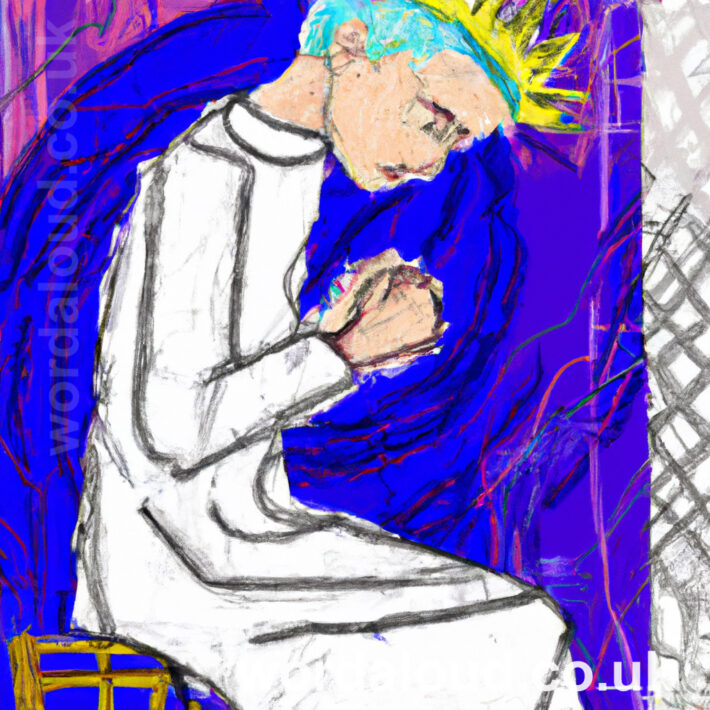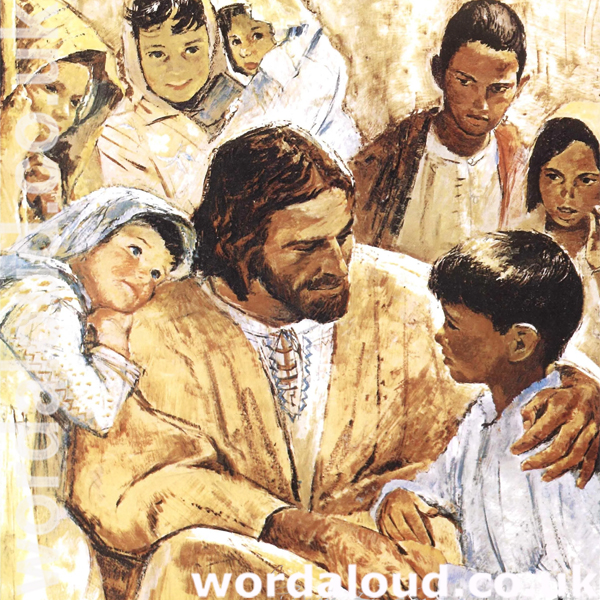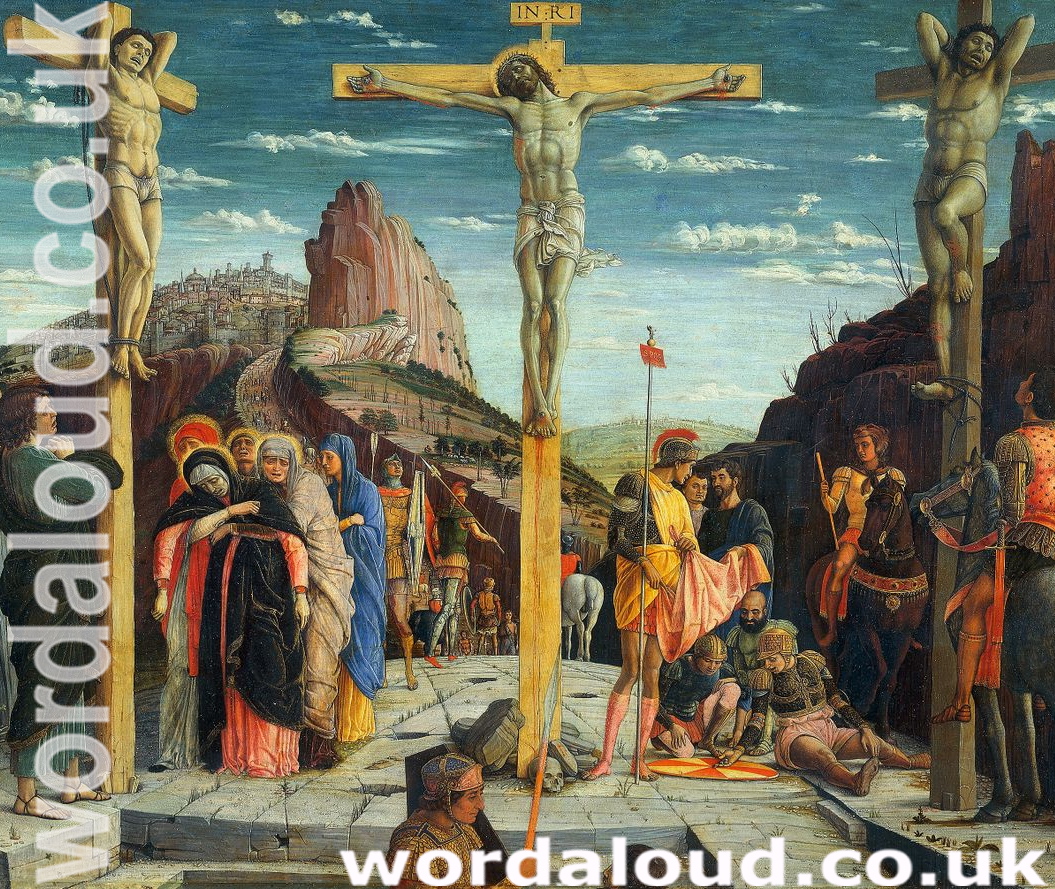Christian Art | Prayer With Jesus | Psalms | Joy Of Worship In The Temple | King David As A Boy | Audio KJV | Love Revealed By Jesus Christ | King James Audio Bible
Psalm 84 | King James Audio Bible
YouTube: Psalm 84 | KJV | King James Version | Audio Bible | Word Aloud
Psalm 84 expresses human yearning for divine presence.
The psalm begins with an exclamation of admiration: ‘How amiable are thy tabernacles, O Lord of hosts!’ The term ‘tabernacles’ here refers to the sacred dwelling places of God. The psalmist’s words convey awe and reverence for the sanctuaries where God is believed to reside. This opening sets the tone for a poetic exploration of the soul’s yearning for proximity to the sacred.
‘My soul longeth, yea, even fainteth for the courts of the Lord,’ declares the psalmist. The language is evocative, conveying depth of yearning that goes beyond desire—it is a soulful craving. The heart and flesh join in a unified cry for the living God, highlighting the holistic nature of this spiritual longing that encompasses both the innermost being and the tangible reality of human existence.
The imagery in the psalm is striking, portraying the sparrow finding a dwelling and the swallow building a nest near the altars of the Lord. These humble creatures become symbols of the psalmist’s longing, finding solace and security in God. The blessing is pronounced upon those who dwell in God’s house, recognizing their perpetual praise and proximity to God.
‘Blessed is the man whose strength is in thee,’ proclaims the psalmist, shifting the focus to the inherent strength found in divine connection. The psalm becomes a celebration of the transformative power of dwelling in God’s presence. The journey is symbolic, with valleys turning into wellsprings, and strength growing from one level to another as the pilgrim progresses towards the divine sanctuary.
The psalmist contemplates the value of a day spent in the courts of God, expressing a preference for even the humblest role within God’s house over dwelling in the tents of wickedness. Here, the contrast is vivid—fleeting allure of worldly comforts pales in comparison to the enduring richness of divine communion.
The psalm concludes with acknowledgment of God as a sun and shield, a source of grace and glory. The psalmist declares that no good thing will be withheld from those who walk uprightly before God. Trust in divine providence becomes the foundation of blessedness.

Psalm 84 | King James Audio Bible KJV | Love Revealed By Jesus Christ
How amiable are thy tabernacles, O Lord of hosts!
My soul longeth, yea, even fainteth for the courts of the Lord: my heart and my flesh crieth out for the living God.
Yea, the sparrow hath found an house, and the swallow a nest for herself, where she may lay her young, even thine altars, O Lord of hosts, my King, and my God.
Blessed are they that dwell in thy house: they will be still praising thee. Selah.
Blessed is the man whose strength is in thee; in whose heart are the ways of them.
Who passing through the valley of Baca make it a well; the rain also filleth the pools.
They go from strength to strength, every one of them in Zion appeareth before God.
O Lord God of hosts, hear my prayer: give ear, O God of Jacob. Selah.
Behold, O God our shield, and look upon the face of thine anointed.
For a day in thy courts is better than a thousand. I had rather be a doorkeeper in the house of my God, than to dwell in the tents of wickedness.
For the Lord God is a sun and shield: the Lord will give grace and glory: no good thing will he withhold from them that walk uprightly.
O Lord of hosts, blessed is the man that trusteth in thee.
Psalm 84 | King James Audio Bible KJV | Love Revealed By Jesus Christ
- Yearning For Divine Presence: Psalm 84 articulates a deep and fervent longing for communion with the living God, portraying the soul’s intense desire for proximity to the divine.
- Sacred Sanctuaries: Imagery of tabernacles and courts underscores the reverence for the sacred dwelling places of the Lord, emphasizing their beauty and desirability.
- Symbolism Of Nature: Psalm 84 employs the imagery of sparrows and swallows finding shelter near God’s altars, symbolizing the soul’s quest for security and solace in the divine presence.
- Blessing Of God’s House: Blessings are pronounced upon those who dwell in God’s house, highlighting the perpetual praise and favored status of those in close communion with the sacred.
- Transformative Strength: Psalm 84 reflects on the strength derived from God, suggesting that dwelling in the divine presence leads to a transformative journey where valleys become wellsprings, and strength progresses from one level to another.
- Valuing Divine Connection: The psalmist expresses a profound preference for even the humblest role within God’s house over dwelling in the tents of wickedness, emphasizing the enduring richness of divine communion over worldly comforts.
- Metaphorical Pilgrimage: Psalm 84 portrays a metaphorical pilgrimage towards the divine sanctuary, where each step brings the pilgrim closer to the transformative power and blessings found in God’s presence.
- Divine Providence: Psalm 84 concludes with a profound acknowledgment of the Lord as a sun and shield, highlighting trust in divine providence. The assurance is given that no good thing will be withheld from those who walk uprightly before God.








